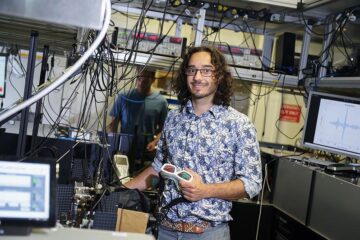TAPPIR® – Tunable Aqueous Polymer Phase Impregnated Resins

Aqueous Two-Phase Extraction (ATPE) is a process proved efficient for the gentle purification of various biomolecules. Fast mass transfer rates and less damage to proteins that are sensitive to mechanical stresses and organic solvents render this unit operation an alternative to commonly used downstream processing technique.
However ATPE has no large-scale industrial applications yet. This is based substantially on very long phase separation times resulting from low interfacial tensions and low density differences between the phases producing intensive and stable emulsions. This causes an increased footprint of the required mixer/settler devices or the application of additional equipment such as energy consuming centrifuges. The present invention relates to a process for separation or purification of biomolecules via ATPE. The advantages are maintained and the major limitation of long phase separation time is overcome by immobilizing one of the two phases in porous particles. Suspending the impregnated particles in the second aqueous phase containing the biomolecules creates the emulsion without any need for phase separation after the extraction step. During the separation process, the biomolecules partition between the aqueous phase surrounding the particles and the immobilized second aqueous phase inside of the particles’ pores. The TAPPIR®-technology can be used on one hand for separation which means the isolation of biomolecules from e.g. fermentation broth (Capture), on the other hand for purification which means the removal of biomolecules like objectionable proteins, viruses, DNA, lipids or other cell debris from biocatalytic processes within the separation of metabolites (Clarification). Moreover the flexibility of the TAPPIR®-technology extends to different possible operation modes namely packed bed, fluidized bed or in situ for e.g. extractive fermentation. In a first example, BSA partitioning in a PEG/Citrate-TAPPIR®-system was characterized. The depletion of BSA in the aqueous salt phase could be increased by 10% in relation to conventional extraction methods. This means nearly a twofold higher efficiency by the use of a considerably faster separation process.
Weitere Informationen: PDF
PROvendis GmbH
Tel.: +49 (0)208/94105 10
Ansprechpartner
Dipl.-Ing. Alfred Schillert
Media Contact
Alle Nachrichten aus der Kategorie: Technologieangebote
Neueste Beiträge

Neue universelle lichtbasierte Technik zur Kontrolle der Talpolarisation
Ein internationales Forscherteam berichtet in Nature über eine neue Methode, mit der zum ersten Mal die Talpolarisation in zentrosymmetrischen Bulk-Materialien auf eine nicht materialspezifische Weise erreicht wird. Diese „universelle Technik“…

Tumorzellen hebeln das Immunsystem früh aus
Neu entdeckter Mechanismus könnte Krebs-Immuntherapien deutlich verbessern. Tumore verhindern aktiv, dass sich Immunantworten durch sogenannte zytotoxische T-Zellen bilden, die den Krebs bekämpfen könnten. Wie das genau geschieht, beschreiben jetzt erstmals…

Immunzellen in den Startlöchern: „Allzeit bereit“ ist harte Arbeit
Wenn Krankheitserreger in den Körper eindringen, muss das Immunsystem sofort reagieren und eine Infektion verhindern oder eindämmen. Doch wie halten sich unsere Abwehrzellen bereit, wenn kein Angreifer in Sicht ist?…

















